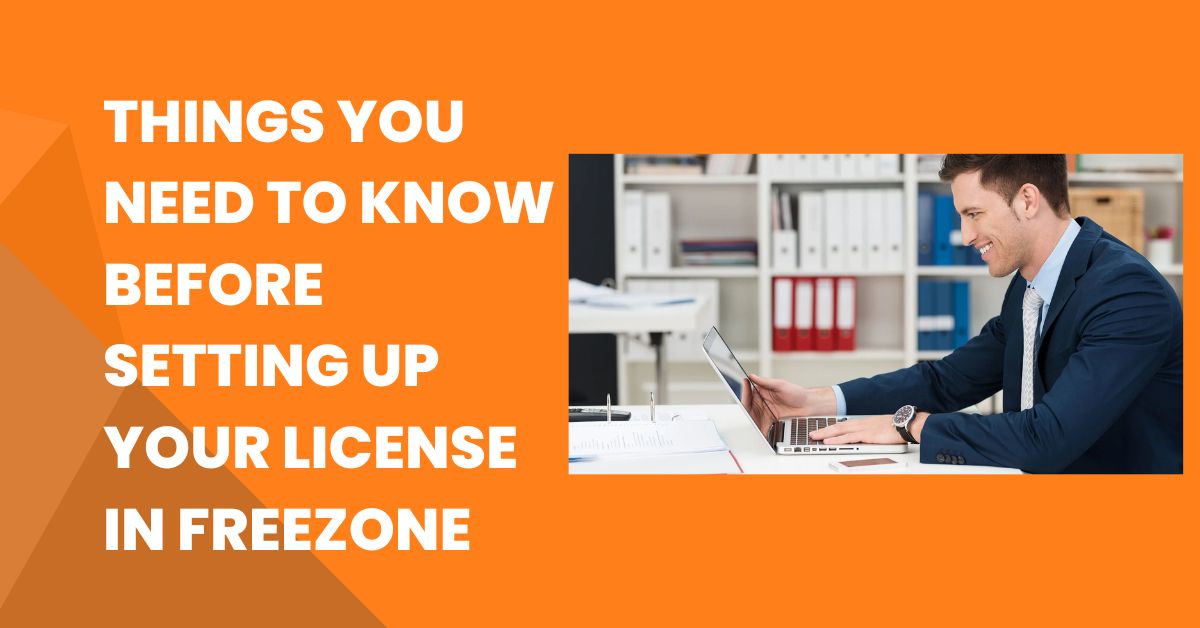Setting up a business in a Freezone can be an exciting opportunity. It offers various benefits that can help your business thrive. However, before you dive into the process, it’s essential to understand what is involved. This blog will guide you through the important aspects of setting up your license in a Freezone, making it easier for you to navigate this journey.
Understanding Freezones
What is a Freezone?
Freezones are special areas in a country where businesses can operate with different regulations compared to the rest of the country. They offer a unique environment designed to attract foreign investment. In a Freezone, businesses often enjoy benefits like tax exemptions, reduced customs duties, and the ability to fully own their company without needing a local partner. These zones are often located near ports or airports, making it easier for companies to import and export goods.
Note – For those looking to embark on the journey of License setup in Freezone, FreeBird offers expert guidance and support. With a dedicated team ready to assist at every step, businesses can ensure a smooth and efficient setup process. Don’t navigate this complex landscape alone; contact FreeBird today to streamline the license setup in Freezone and unlock the full potential of your business!
Benefits of Setting Up in a Freezone
One of the main reasons to set up your business in a Freezone is the various advantages it offers. Businesses in Freezones typically enjoy 100% foreign ownership, which means you can fully control your business without needing a local partner. Additionally, Freezones often provide tax benefits, such as exemptions from corporate tax for a certain number of years. This can help your business save money and reinvest in growth. Freezones also often have simplified processes for obtaining licenses and permits, making it easier to start and run your business.

Key Steps in Setting Up Your License
Researching Your Options
Before you can set up your license in a Freezone, it’s crucial to research your options. There are many Freezones, each with its own regulations and benefits. Some Freezones cater specifically to certain industries, such as technology, logistics, or healthcare. Take the time to identify which Freezone aligns best with your business goals. Look for information about the types of companies already operating in the Freezone, the facilities available, and the support services offered. This will help you determine which Freezone is the best fit for your business.
Choosing the Right Freezone for Your Business
Once you’ve done your research, it’s time to choose the right Freezone for your business. Consider factors such as location, industry focus, and available infrastructure. For example, if your business involves importing and exporting goods, a Freezone near a major port might be ideal. On the other hand, if you’re in the tech industry, look for a Freezone known for supporting tech startups. Each Freezone has unique features that can influence your decision, so weigh your options carefully to find the best fit.
Documentation Requirements
Essential Documents for License Application
When applying for a license in a Freezone, you will need to gather specific documents. These may include a business plan, copies of your passport, and proof of address. A business plan outlines your business objectives, strategies, and financial projections. It is essential to demonstrate to the Freezone authority that you have a clear vision for your business. Additionally, some Freezones may require a no-objection letter from a local authority or a bank reference. Ensure you have all the necessary documents prepared to streamline the application process.
Understanding the Application Process
The application process for obtaining a license in a Freezone can vary depending on the location. However, it typically involves submitting your application and required documents to the Freezone authority. After submission, your application will be reviewed, and you may be asked to provide additional information or clarification. It’s essential to stay engaged with the authority throughout this process to ensure your application is processed efficiently. Understanding the timeline for approval and being proactive can help prevent delays.
Costs Involved in License Setup
Initial Setup Costs
Setting up a business in a Freezone involves various costs, including initial setup fees. These fees may include the cost of the license itself, registration fees, and any deposits required for office space or facilities. Additionally, consider costs associated with obtaining necessary documents, such as legal fees for drafting contracts or business plans. Creating a detailed budget that outlines these costs can help you manage your finances effectively.
Ongoing Operational Costs
In addition to initial setup costs, it’s crucial to consider ongoing operational costs. These may include rent for office space, salaries for employees, utility bills, and other regular expenses. Understanding your ongoing costs is essential for maintaining a sustainable business. Consider developing a financial plan that outlines your expected revenue and expenses to help you stay on track and ensure your business remains profitable.
Legal and Compliance Considerations
Understanding Legal Requirements
Before setting up your license in a Freezone, it’s vital to understand the legal requirements. Each Freezone has its own regulations governing business operations, and failing to comply can result in penalties or even the revocation of your license. Familiarize yourself with the local laws and regulations to ensure your business operates within the legal framework. Consulting with a legal advisor familiar with Freezone regulations can provide valuable insights and help you navigate the complexities of compliance.
Ensuring Compliance with Local Laws
Compliance is not just about understanding the regulations; it also involves ongoing adherence to them. After setting up your license, you’ll need to ensure that your business continues to comply with local laws. This may involve regular reporting to the Freezone authority, maintaining accurate financial records, and following labor laws. Keeping abreast of any changes in regulations is essential to avoid potential legal issues. Staying informed will help you manage your business more effectively and maintain a positive relationship with the Freezone authority.
Conclusion
Setting up a license in a Freezone can be an excellent opportunity for entrepreneurs and businesses looking to grow in a supportive environment. However, it’s crucial to approach the process with a clear understanding of the necessary steps and considerations. By researching your options, preparing the required documentation, understanding the costs involved, and ensuring compliance with local laws, you can set your business up for success. Take the time to educate yourself and seek assistance when needed, and you’ll be well on your way to establishing a thriving business in a Freezone.
Remember that the journey of setting up your business is just the beginning. Stay focused, adaptable, and open to learning as you navigate the challenges and opportunities that lie ahead. Good luck!
For more insightful articles related to this topic, feel free to visit technonetwork.co.in

